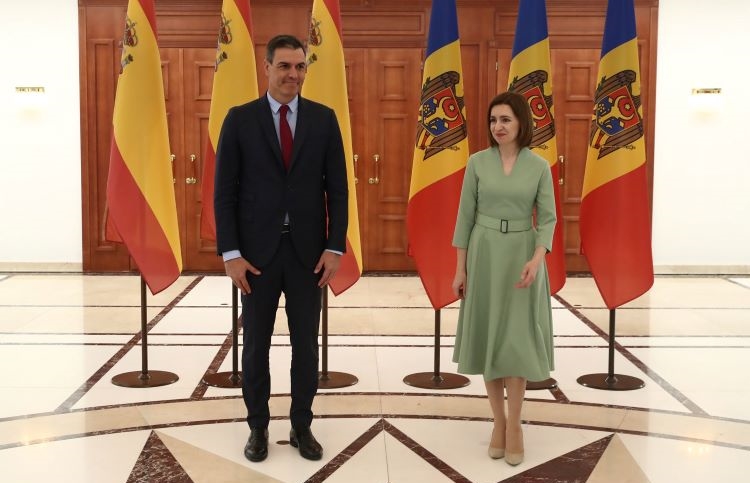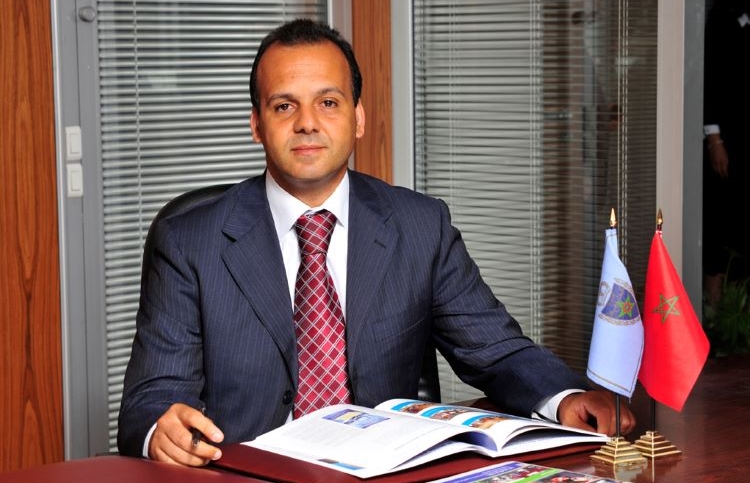The Diplomat
The President of the Government, Pedro Sánchez, announced yesterday, during his official visit to Moldova, the opening of a diplomatic antenna in the capital, Chisinau, in order to “strengthen bilateral relations” in these moments of “great difficulty and international political tension” due to the Russian invasion of Ukraine.
Sánchez made yesterday the first visit of a Spanish Prime Minister to Moldova, a visit that was initially scheduled at the end of April and was suspended because of the parliamentary vote on the decree-law to address the crisis caused by the war in Ukraine.
In Chisinau, the chief executive met with Moldovan President Maia Sandu and Prime Minister Natalia Gavrilița, who explained to him the consequences of the Ukrainian war on their territory. Moldova, which borders Ukraine, has received more than 400,000 Ukrainians fleeing the Russian invasion, making it the country that has received the most refugees in proportion to its population (2.7 million inhabitants).
“Today I am in Moldova to convey a strong message of support and to reiterate our commitment of solidarity with the Moldovan authorities and people at a time of great difficulty and international political tension,” said Sánchez during the reading of an institutional declaration together with President Sandu.
“The Government of Spain is determined to support Moldova in everything in our power to overcome this dramatic crisis, both bilaterally and within the framework of the European Union, and I am pleased, in this regard, to announce something that I have previously conveyed to the president, and that is that we are going to open a Spanish diplomatic office here in Chisinau with the aim of further strengthening our bilateral relationship,” he added.
Subsequently, Moncloa specified in a press release that “Spain has opened this week a diplomatic antenna in the capital of the country” in order to “boost economic and trade relations in sectors such as infrastructure, agri-food or renewable energies”. Spain has no Embassy in Chisinau and is represented in Moldova from the Embassy in Bucharest. On the other hand, Moldova has had an Embassy in Madrid since July 2010. In 2022 it will be thirty years since the beginning of diplomatic relations between Spain and Moldova.
With the one in Chisinau there are already three diplomatic antennas opened this year by the Government, after those of Montenegro and Armenia, which will start operating in August. The creation of diplomatic antennas – which implies the appointment of a person in charge ad interim and the establishment of a headquarters for the representation of Spain – allows the presence in countries where there is no Embassy, although at a lower cost, and facilitates the task of the heads of mission who are accredited to several countries at the same time.
Ukrainian refugees
On the other hand, Pedro Sanchez assured yesterday that “Spain also stands with Moldova in the face of the current challenge”. “We must face together the impact of the war, from the humanitarian point of view, but also from the economic one”, he declared. In this regard, he recalled that Spain is “going to allocate eight million euros” to meet the needs in the countries bordering Ukraine, “including, logically, Moldova”, and that “30 tons” of food, shelter and personal hygiene kits have already arrived from Spain. “We have offered to take in 2,000 Ukrainians who are currently in Moldova after having joined the platform of support for Moldova, if there is a need”, he announced.
The Prime Minister also visited in Chisinau one of the refugee centers that this country has set up since the beginning of the war in Ukraine. A SAMU medical team from Andalusia, made up of eight people, is working there: two doctors, three nurses, two health emergency technicians and a head of mission. After the visit, Pedro Sánchez highlighted the “exemplary attitude of solidarity” of Moldova in its management of the massive arrival of Ukrainians.
Sánchez also expressed his support for the reformist and pro-European agenda of the Moldovan government, which last March applied for EU membership -thus joining Ukraine and Georgia-, and assured that Spain defends Moldova’s sovereignty and territorial integrity within its internationally recognized borders. Tensions rose considerably in Moldova at the end of April (around the same time of the suspension of Sánchez’s visit) in view of the possibility that Russia might try to extend its offensive in Ukraine towards the Moldovan separatist region of Transnistria.







